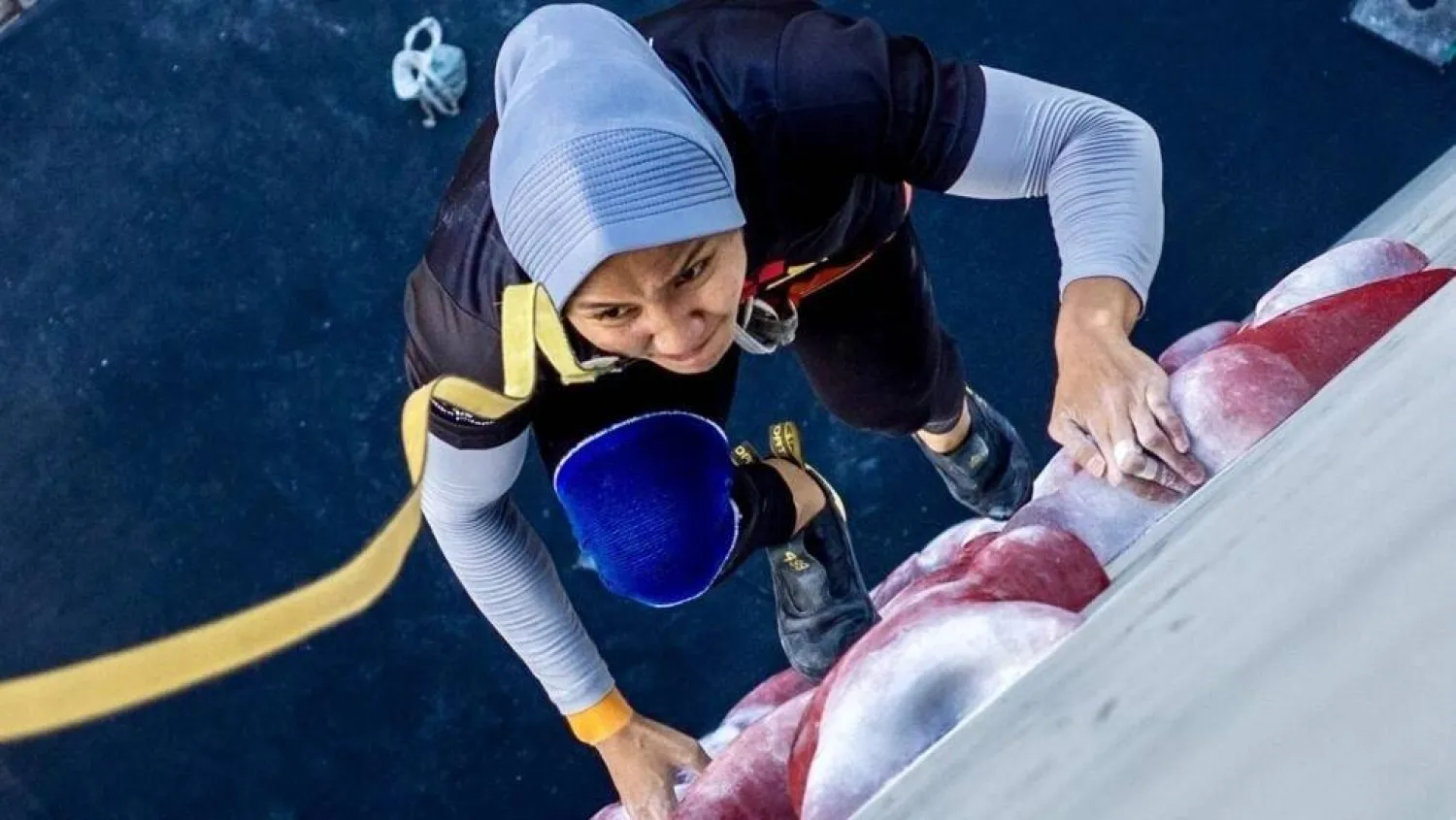Indonesian speed climber Desak Made Rita Kusuma Dewi checks her harness, her brow dripping with sweat and her breaths labored, gripping the hold and swinging her body upwards to scale a wall in mere seconds.
The 23-year-old is training for next month's Paris Olympics, where she hopes to add to Indonesia's meager tally of gold medals -- the country has only ever won eight, all in badminton, AFP said.
But in recent years the Southeast Asian archipelago has gained recognition as an unlikely force in speed climbing, smashing records and nabbing multiple medals at top international events.
Climbing -- combining three forms of the sport -- was first included at the Olympics in Tokyo in 2021. Paris 2024 will see speed climbing become a separate event for the first time.
Competitors scramble up a standardized 15-meter (50-foot) vertical route and the one who reaches the top in the fastest time, typically just a few seconds, wins.
"As it gets closer, I don't want to think about anything else," Desak, one of two Indonesian speed climbers to have so far qualified for Paris, told AFP after a training session at the national team's facility outside the capital Jakarta.
"I just focus on the Olympics."
Indonesian climbers have excelled in the speed format because their typically slight stature gives them speed and agility. Pure dedication and teamwork is also behind the success.
"If we keep bemoaning about our lack of height, we will never be able to compete," national wall-climbing coach Hendra Basir told AFP.
"So we focus on our advantage as small people. We have been blessed with agility."
Long process
Desak has been climbing since childhood and now has a chance to make her Olympic dream come true after winning gold in the women's speed event at a world championship in Switzerland last year.
Joining Desak in going for gold in the French capital will be Rahmad Adi Mulyono, 23, after he won a qualifier against another Indonesian to advance.
"At first of course I felt a burden, but as time goes by I have a nothing-to-lose attitude," he told AFP.
Both decided to focus on speed climbing instead of lead and boulder, the two other climbing disciplines featured in Tokyo.
"I am optimistic. What I first need to do is upgrade myself, focus, and shorten the time (to the top) every time I train," said Rahmad.
Hendra said the athletes had spent years training to make sure Indonesia, which has not generally excelled in global sport, has a chance of achieving Olympic gold.
"We have gone through a very long process from 2019, starting from qualification for the Tokyo Olympics, and not to mention the (pandemic) break," said the coach.
'Sliver of hope'
While speed climbing remains firmly behind football and badminton in terms of sporting attention at home, its popularity is growing.
But the local sports industry remains underdeveloped for speed climbing and other climbing disciplines, leaving athletes with often greater walls to climb.
"God willing there's a sliver of hope that the Indonesian team can compete to win gold medals at the Olympics, but indeed, the process to reach this point was incredibly hard," said Hendra.
There is optimism though that the promise shown in speed will translate to the walls of Paris.
Former world record holder Veddriq Leonardo could still qualify for the Games if he finishes well at a tournament in Hungary later this month.
"Of course we are hoping that speed climbing, as a debut sport at the Olympics, can give a surprise achievement," Indonesia's National Olympic Committee chairman Raja Sapta Oktohari told AFP.
"We have a world champion in this sport. I hope in the 2024 Paris Olympics, Indonesian athletes can score an achievement and a new history," he added, referring to Desak.
But the competition will be tough. Veddriq's world record of 4.90 seconds was beaten twice in April by the American Samuel Watson and is now 4.798 seconds.
Regardless of the pressure and weight of expectation, Desak is primed to give her all.
"I hope my dream to hear Indonesia Raya (national anthem) reverberate at the Olympics will come true," she said.
"My dream is to win a gold medal."









